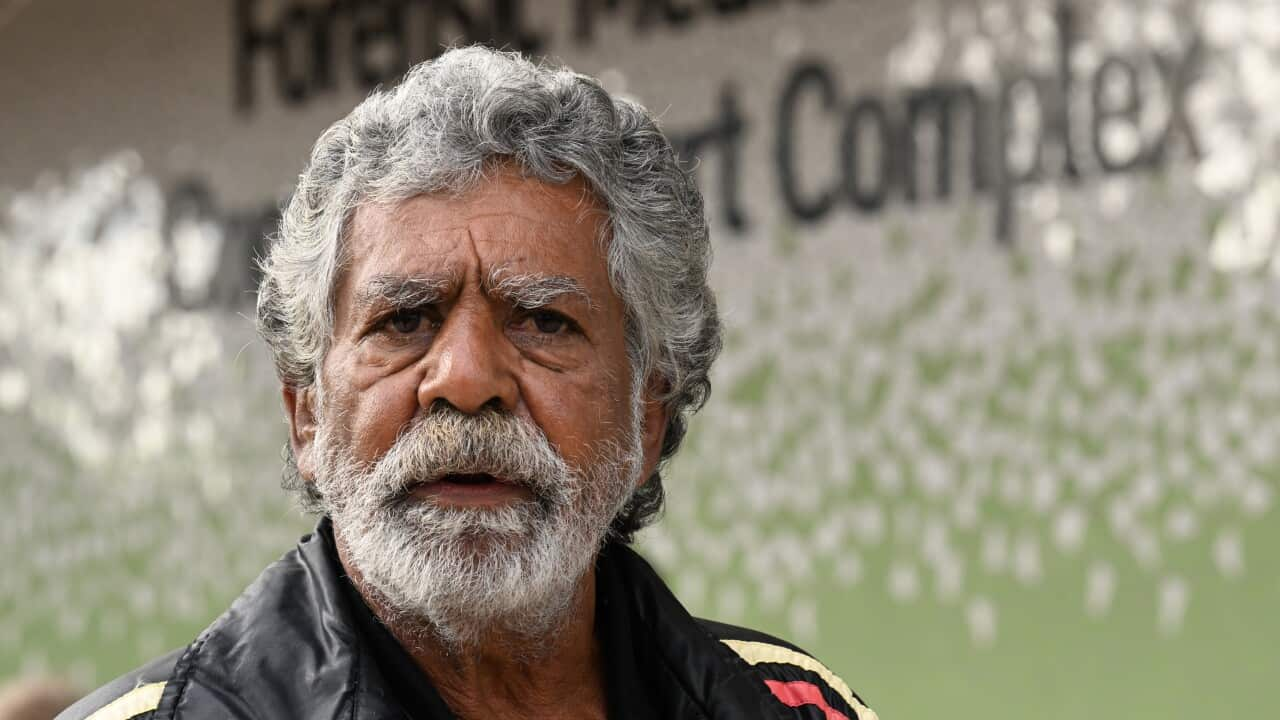The coronial inquest into the death of Mark Haines, a 17-year-old Gomeroi teenager found dead on train tracks near Tamworth in 1988, has reconvened in Sydney this week, following years of lobbying by his family.
The fresh inquest, which began in 2024, has heard emotional testimonies and raised questions about the handling of the investigation.
“All it would take is for one person to say yes I was there … and I dare say that would be the start of finding out exactly what has happened to Mark," Mark's uncle, Don Craigie, told NITV.
Mark's body was discovered on January 16, 1988, eight kilometres south of Tamworth, with initial police investigations concluding that he was responsible for his own death.
A subsequent inquest returned an open finding, but recent developments, prompted by his family, have led to a renewed inquiry.
Mr Haines' family always rejected the notion that he had taken his life and have consistently reiterated in the years since his death a strong belief that he was met with foul play.
One of the key revelations from the inquest occurred on Monday when it was revealed that a stolen white Torana found near the train tracks where Mark’s body was discovered belonged to the boss of Glenn Mannion, a close friend of Mark who was with him hours before his death.
The body of the Gomeroi teenager was found with a folded towel or a blanket propped under his head and cardboard boxes nearby.
Some of these items are believed to have been from the stolen vehicle.
Mr Mannion, looking directly to Mark's family, told the inquest he had "absolutely 100 percent no idea" how Mark ended up on the tracks.
He told the inquest that he believed "something sinister happened to Mark."
On Tuesday, Raymond Ervine, who was a close friend of Mark Haines, gave emotional evidence.
He told the inquest he had given Mark his birth certificate before his death, so that he could gain entry to a local nightclub 'Dominos'.
During his evidence, Mr Ervine described the teenager as someone who would never have knowingly been involved with a stolen car.
“None of it made sense at all, it was never his character," he told the inquest.
Mr Ervine expressed deep regret over the death of Mr Haines to the inquest, telling the coroner in the years that have followed Mr Haines death, he has experienced guilt.
"If I hadn’t have given him my birth certificate, he might have come home with me," Mr Ervine said through tears.
Former Detective Chief Inspector Brad Tayler also provided evidence about the investigation's handling.
When speaking to the inquest, he acknowledged that, in hindsight, one of the original lead investigators, Brett Edmunds— who was close friends with Glenn Mannion, should not have been involved in the case.
The former Tamworth policeman helped coordinate the ongoing investigation in 1999, told the inquest that staffing shortages at the Tamworth police station limited the investigation's effectiveness.
“There were drugs and murder, and those types of things take precedence over the Haines case”.
On Thursday, Mark’s uncle, Don Craigie, took the stand to give his evidence.
It came after more than three decades of lobbying for the investigation into his nephew's death to be reopened.
He told the inquest that the white Torana that was found crashed near the train line, remained there for weeks after Mr Haines body was recovered.
Mr Craigie also told the inquest that he opened the car's boot and discovered items, including a vinyl mat and a spare tire that appeared to have blood stains.
"I've hunted rabbits, goannas, kangaroos, pigs - I know the sight of blood," Mr Craigie said.
During his evidence, he made the revelation that he had handed the items over to police who swabbed them and later determined the blood was not human.
Mr Craigie told the inquest of how he and his brothers also walked on an overpass to try and understand how Haines had come to lie on the tracks.
In court, Mr Craigie recalled thinking: "There's no way he could have got across here."
On Friday, during his second day of evidence, when asked what his nephew Mark meant to him, Mr Craigie described his nephew as a "special kid... a quiet, unassuming boy" who was well loved by family and friends.
Mr Craigie explained how his family believed that racism had skewed the investigation into his 17-year-old nephews' death.
Telling the inquest: “That’s how I and the family felt—never taken seriously by police.”
During his evidence, he became emotional as he told the inquest “If he was a white boy, they would have turned that train over to make sure there was no blood, no hair, no brain tissue, no clothing… That's how I felt”
“I’ve seen a few deaths around Tamworth, and I've seen them pull up every stop, police came from everywhere, the town was crawling with them," Mr Craigie said.
He also told the inquest of the prevalence of racism at the time of his nephew's death, explaining that the resettlement area for Indigenous families in the Tamworth suburb of Coledale was given the racist descriptor of "Vegemite valley" when his nephew was growing up.
The inquest, which was set to conclude today is now expected to reconvene for several weeks later in the year, before the coroner can consider the findings and deliver a final report.


